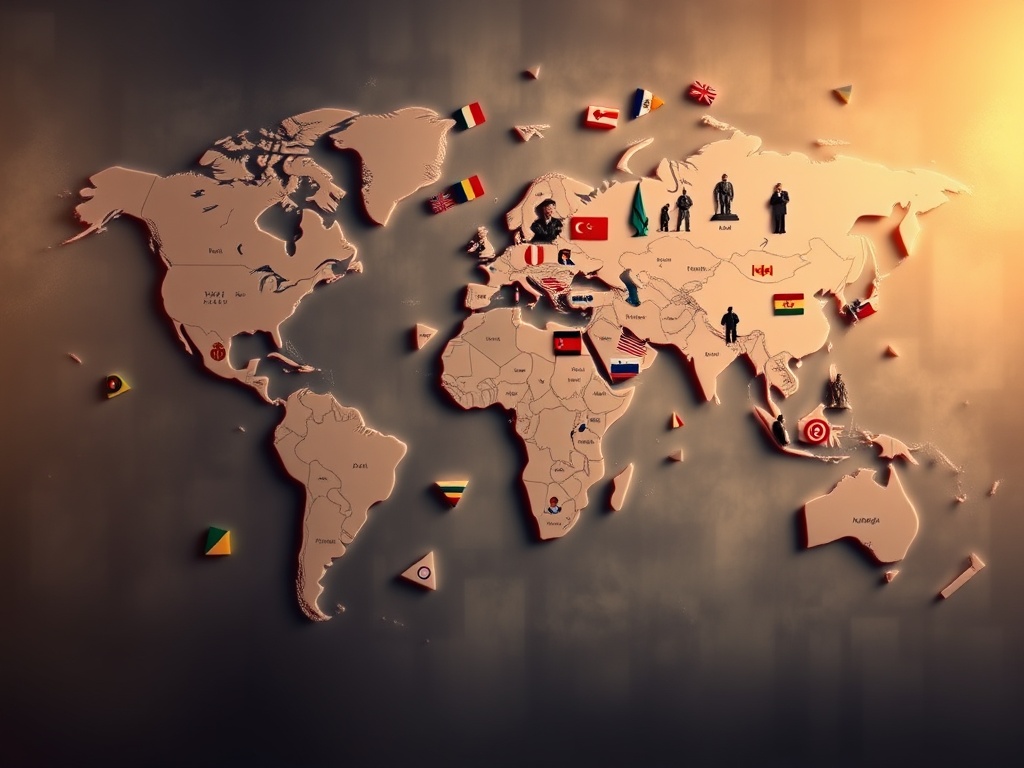Unforeseen Shifts in Global Politics

Recently, I attended a conference dedicated to exploring the concept of “black swan” events—those unpredictable occurrences that can disrupt established norms and practices in politics and policymaking. These events often catch us off guard, as we may not even consider their potential impact.
As experts from finance, public services, and security sectors shared their experiences with such disconcerting phenomena, a significant illustration of this idea was unfolding at the United Nations in New York. This coincided with the third anniversary of Russia’s invasion of Ukraine, where a surprising shift in the United States’ stance became evident. In a remarkable turn of events, the US aligned itself with Russia—twice—marking a significant departure from its historical support for Ukraine’s sovereignty, a position famously recognized by former President George H.W. Bush on Christmas Day in 1991.
On that Tuesday, the US voted alongside Russia on crucial resolutions that signaled a retreat from its collaborative approach with Europe. Rather than supporting a European-sponsored resolution that condemned Moscow’s actions and upheld Ukraine’s independence, the US chose to side with non-democratic nations like North Korea and Belarus at the UN General Assembly. This shift reflects a deepening divide, as the new administration appears intent on dismantling the post-Cold War order in favor of a mercantilist approach that prioritizes US self-interest.
In this context, Russia is being courted as a counterbalance to China’s rise, a strategy that has sparked outrage and concern among many observers. The rhetoric emanating from the West Wing has raised alarms about the administration’s tendency to resort to falsehoods, which ultimately empower dictators and those who undermine democratic values.
A striking comment from a black swan expert lingered in my mind during these discussions, suggesting that such unexpected developments are indicative of a broader failure to understand existing systems and relationships. The crux of the issue lies not solely in the rarity of black swan events but rather in the systemic inability of organizations, and in this case, the international community, to anticipate their occurrence and prepare for the resultant changes.
This situation parallels the cybersecurity community’s battle against “zero-day” vulnerabilities—attacks that occur without prior warning because they were not foreseen. Today, we are witnessing a geopolitical version of this phenomenon. Take, for example, Europe’s historically low defense spending; discussions around Germany, a wealthy nation, finally meeting NATO’s target of 2 percent of GDP have only gained traction following Russia’s aggressive military actions and threats towards neighboring countries like the Baltics and Poland. This shift in discourse indicates that we had grown complacent, believing that the US would remain steadfast in its commitment to defend Europe, regardless of the political landscape.
- Friedrich Merz, Germany’s newly elected Chancellor, articulated this altered reality succinctly: “After Donald Trump’s remarks last week, it is clear that the Americans, especially those in this administration, do not prioritize the fate of Europe.”
- This sentiment starkly contrasts with the diplomatic language favored by Keir Starmer, as the UK seeks to navigate these turbulent waters with a more measured approach. The Prime Minister’s assertion that “President Trump is right that European nations must now take greater responsibility for our security” presents a half-truth that aims to soften the harsh reality.
While this may serve to mitigate some backlash, it is ultimately a bittersweet pill to swallow. The reality of what President Trump envisions as “greater responsibility” aligns closely with Merz’s insights—that as the US pivots to prioritize a bilateral relationship with Russia, Europe, including the UK, finds itself sidelined.
For many Atlanticists, this is an uncomfortable truth, but it is essential to recognize that historical precedents exist that illuminate these unexpected shifts. The US has a long-standing pattern of oscillating between engagement and various forms of isolationism in its trade policies and foreign relations.
One perspective posits that former President William McKinley, who favored tariffs and distanced the US from international conflicts, provides a model for the current wave of Trumpism. His valedictory address in 1901 emphasized the importance of peace over war, a sentiment that seems at odds with the current global climate.
Moreover, we must acknowledge a “model failure” characterizing our contemporary era: the post-Soviet collapse, which positioned the US as a unipolar power amid the rise of global economic interdependence, has lulled us into a false sense of security regarding the volatility of world affairs. The historical narrative of fraught transatlantic relations stretches far longer than the period of cozy “special” partnerships.
In light of these developments, we can remain hopeful for a more favorable future, keeping pathways open for alliances that support our security interests. However, we must also confront the reality that the geopolitical landscape has changed, and diplomacy, while valuable, may no longer be sufficient to address the fundamental challenges we face.
As we navigate this new era, it is crucial to recognize our increased responsibility for our own security, understanding that our relationship with Washington may evolve into something more cautious than “special.” The arrival of the black swan serves as a poignant reminder of our unpreparedness for this reality, one that we must now face with clarity and resolve.
Anne McElvoy is the executive editor at Politico and the host of the Power Play transatlantic interview podcast.




